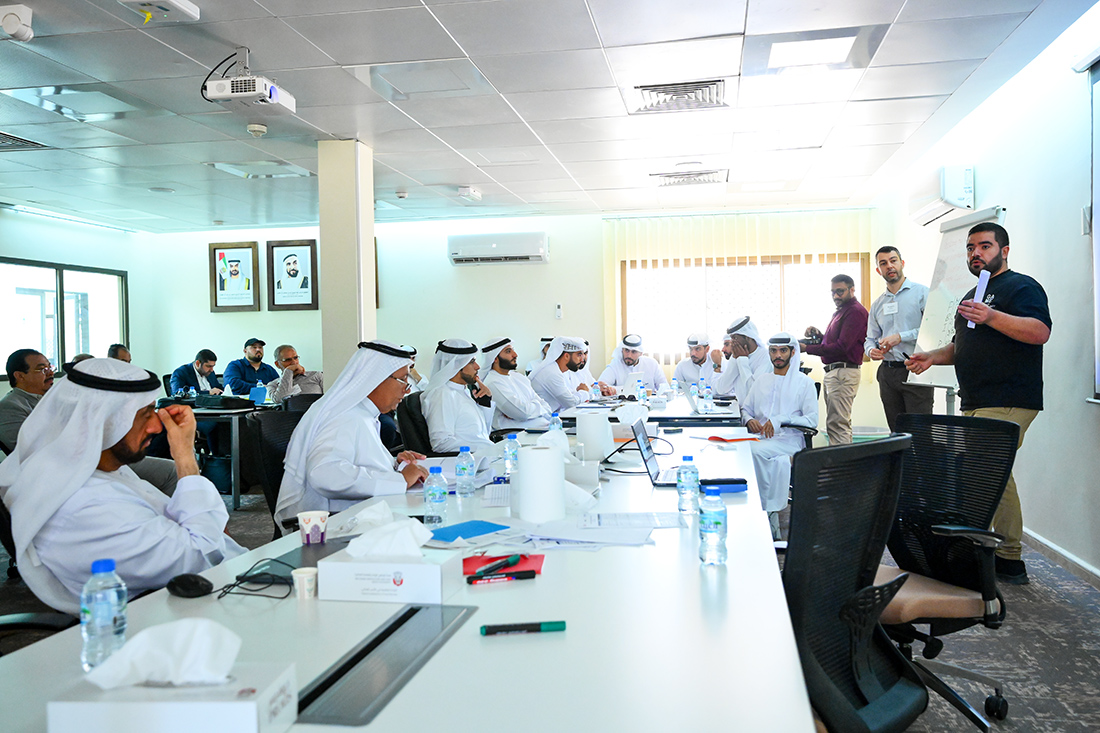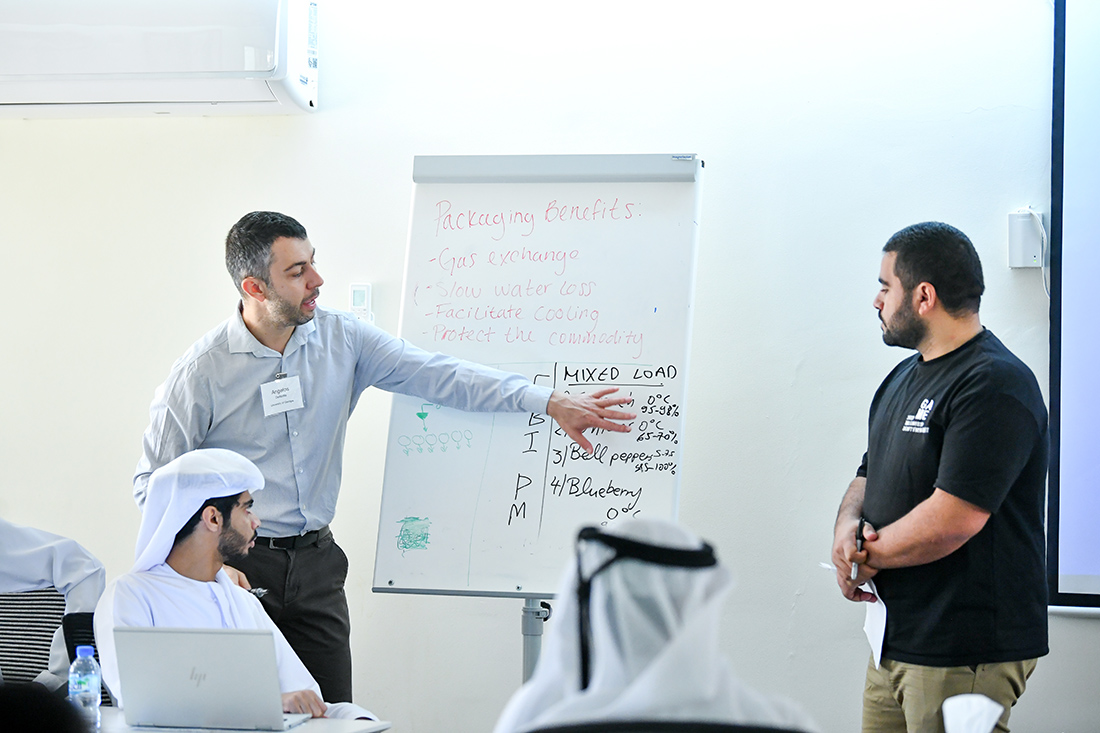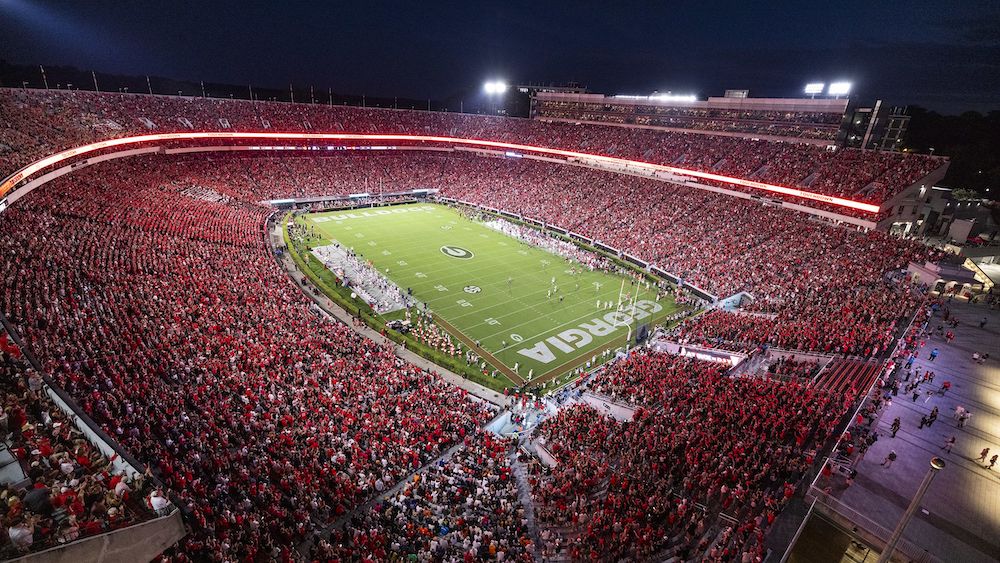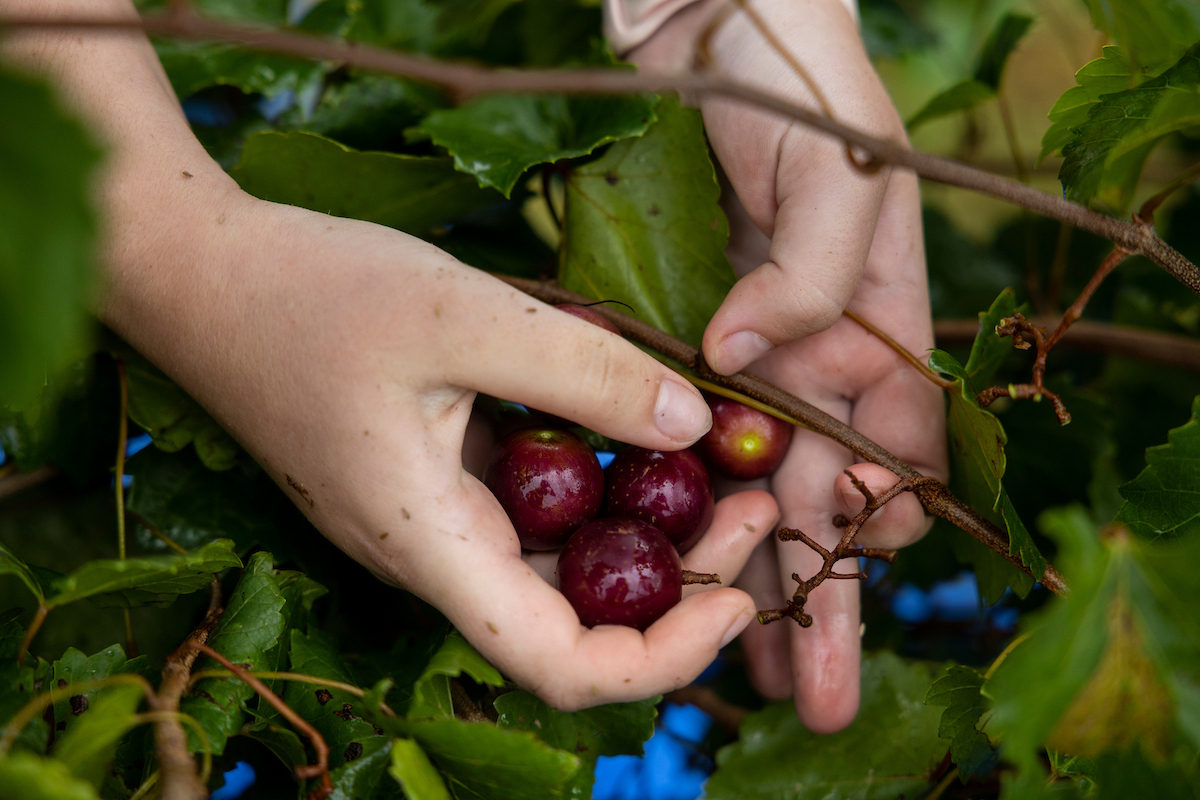
Each year, more than 1.3 billion tons of edible food is lost or wasted across the global supply chain — much after harvest but before it ever reaches a plate.
Now, researchers at the University of Georgia College of Agricultural and Environmental Sciences (CAES) and partners across North America are working to help reduce food loss in one of the most challenging agricultural environments in the world: the United Arab Emirates.
Through the new international collaboration, U.S.-based postharvest specialists partnered with agricultural leaders in Abu Dhabi, UAE, to strengthen local food systems, improve crop handling and storage, and train the next generation of Extension professionals — all with the goal to keep more food fresher, longer.
In early 2024, the Abu Dhabi Agriculture and Food Safety Authority (ADAFSA) and Khalifa University contacted Angelos Deltsidis, CAES assistant professor and postharvest UGA Cooperative Extension specialist, to lead the effort.
“Abu Dhabi’s government is deeply committed to supporting local fruit and vegetable production,” Deltsidis said. “They’ve recognized that growing more food locally is important to their citizens — and they came to us to help build the systems to support that.”
Sharing the UGA Extension model with the world
The collaboration is part of a one-year, $693,000 project led by CAES in partnership with Kansas State University and the University of California, Davis, with support from Khalifa University and ADAFSA. The University of Florida, the University of Queretaro in Mexico and UC Riverside also participated throughout the project.
The team brought deep expertise in Extension education, food safety and postharvest technology to ADAFSA’s goal of strengthening local food systems by training a new generation of agricultural Extension professionals and improving how crops are cooled, stored and transported after harvest — especially in the face of a hot, arid climate.
The initiative began with a fact-finding mission in Abu Dhabi to assess existing postharvest practices. Deltsidis and his colleagues evaluated cooling, storage and handling infrastructure while meeting with Extension engineers and “leader farmers” — experienced growers who are key to sharing information locally.
They discovered that, contrary to expectations, Abu Dhabi’s agriculture sector includes a significant number of smallholder farms, which require highly tailored guidance and support.
“Our initial evaluations also revealed common ground with U.S. farming challenges: a clear need for better cooling infrastructure, training in handling techniques and access to up-to-date resources,” Deltsidis said.
The findings helped shape the next phase of the project, which is delivering practical, hands-on training modeled after the U.S. Cooperative Extension system.

A train-the-trainer approach
At the project’s core is a train-the-trainer model that uses hands-on sessions to equip ADAFA Extension engineers with the tools and knowledge needed to advise and support local growers.
“Trainees were able to learn our county delivery system and how we work with agents as they rework their structure to make it more efficient,” Deltsidis said. “We’re not just giving them information. We’re showing them how we work with agents, how we deliver science to the field. They’re taking that model and adapting it to fit their structure.”
In addition to in-person training, the U.S. team helped update approximately three dozen postharvest manuals used across the UAE, ensuring they reflect the latest scientific recommendations tailored to each crop.
Global impact rooted in Extension
Delegates from ADAFSA and Khalifa University also visited California to tour the UC Postharvest Research and Extension Center and meet with U.S. agribusinesses. The visit, also attended by CAES Assistant Professor and Small Fruit Extension Specialist Zilfina Rubio Ames and Jakeline Zuluaga Acosta, postdoctoral associate in Deltsidis’ lab, provided real-world insight into how large-scale postharvest systems function — from cold chain logistics to on-farm handling.
For Deltsidis, the opportunity reflects the global relevance of the U.S. Extension system — and the growing demand for science-based solutions that improve food security in challenging environments.
“From a food systems perspective, what they’re doing is quite visionary,” Deltsidis said. “They’ve chosen to invest in sustainable, local agriculture. And they’re doing it by tapping into international expertise and bringing that knowledge home.”
The project also offers significant benefits to UGA and the state of Georgia by supporting collaborative research that addresses shared challenges in agriculture, including shifting weather patterns. By partnering with regions facing similar pressures, Deltsidis and his team can explore innovative approaches to produce handling, storage and transportation that enhance food system resilience both globally and across Georgia’s commodities.
Despite differences in growing conditions, the fundamentals of postharvest science remain consistent, allowing Georgia and U.S.-based researchers to apply their expertise in ways that strengthen agricultural practices at home while contributing to global solutions.
Learn more about CAES’ research in postharvest technology at instagram.com/ugapostharvest.




